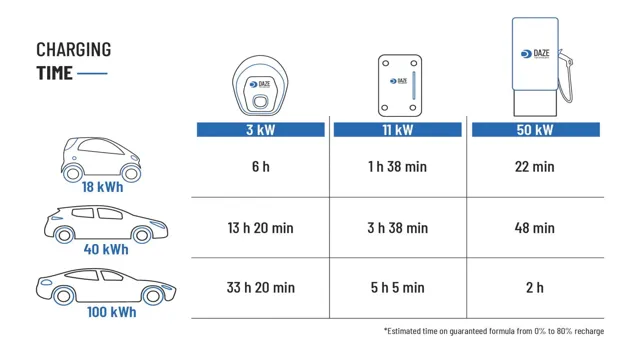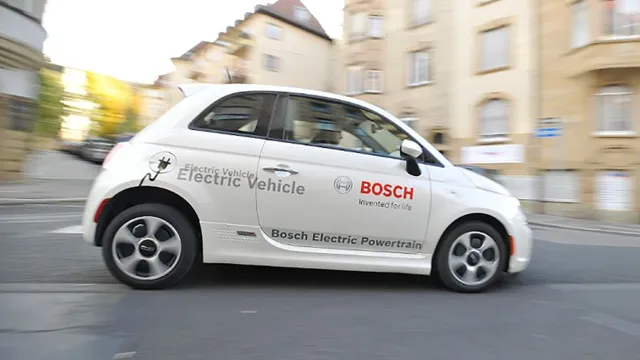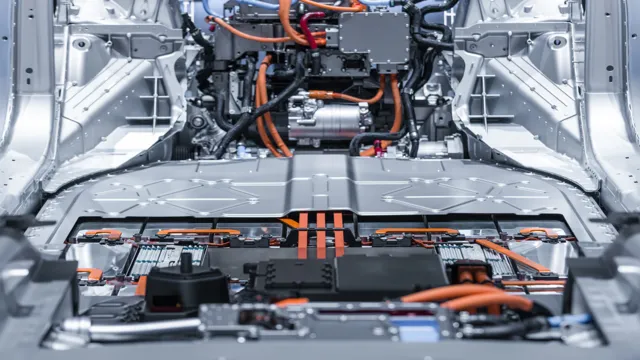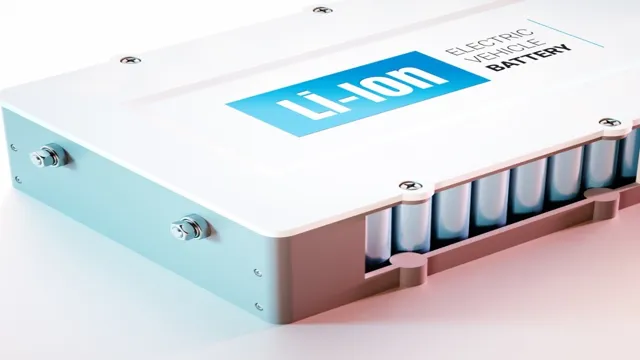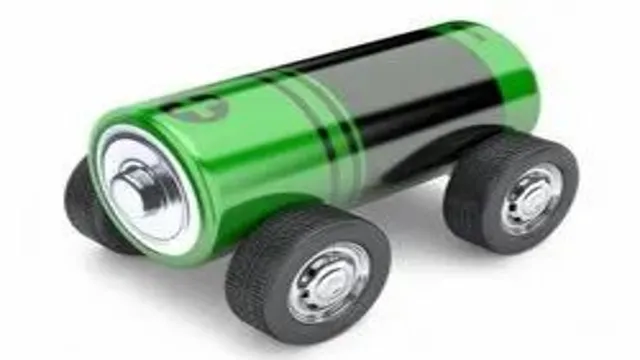Revving Up Your Electric Car: The Ultimate Guide to Optimizing Battery Charger Time!
Electric car battery technology has improved in leaps and bounds in recent years, providing vehicles with extended ranges and more efficient charging capabilities. However, one common question on the minds of electric vehicle enthusiasts is how long it takes to charge an electric car battery fully. With so many different models on the market, it’s challenging to give a straight answer.
The time it takes to charge an electric car battery depends mostly on the capacity of the battery, the amount of discharged energy, and the charging power of the charging station. For instance, a level 1 charger will take longer to charge your battery fully than a level 2 charger. Additionally, some vehicles have a fast-charging capability, enabling them to recover up to 80% charge in less than an hour.
While some charging stations offer the latest and quickest charging technologies that provide a speedy top-up, others may be slow and limited in their power output, resulting in longer charging times. So if you don’t have an EV charger at home, it’s essential to do your research to find the best and most accessible charging points on the road. Whether you want to charge your electric vehicle on the go, using a public charging point, or recharging overnight at home, understanding battery charging times will enable you to maximize your asset’s efficiency.
So what factors affect battery charging times, and what does the future of EV charging look like? Let’s dive in.
Why Charging Time Matters
Electric car battery charger time is becoming an increasingly important topic in the world of electric vehicles. As more and more people make the switch to electric cars, charging time has now become a major factor in their decision-making process. In fact, the amount of time it takes to charge an electric car can make all the difference in terms of convenience and practicality.
With traditional gasoline-powered cars, refueling only takes a few minutes, so drivers don’t have to plan their schedules around it. But charging an electric car battery can take anywhere from thirty minutes to several hours, depending on the charging method and the car’s battery size. Therefore, choosing an electric car with a fast-charging system or investing in a high-speed home charger can provide the convenience and flexibility drivers need to make electric vehicles a true alternative to gas-powered cars.
Longer Charge Times
In today’s fast-paced world, time is a valuable commodity, and we want everything to be done quickly. This need for immediacy has spilled over into the realm of technology, and nowhere is this more evident than with our electronic devices. Charging our devices isn’t something we always have the time for, and as a result, we’re always looking for ways to reduce charging times.
But have you ever stopped to think about why charging time matters? Sure, it’s convenient to have your device fully charged in a short amount of time, but it’s not just about convenience. Longer charge times can impact the performance and lifespan of your battery. When a battery takes longer to charge, it generates more heat, which can degrade the battery over time.
This means that your battery won’t last as long, and you’ll be replacing it more frequently. In addition, longer charge times can result in what’s known as “trickle charging,” where the battery continues to charge even after it’s reached 100%. Trickle charging can stress the battery, causing it to lose capacity more quickly and increasing the risk of overheating and damage.
Therefore, it’s essential to find a balance between convenience and battery health when it comes to charging our devices. By taking the time to charge your device properly and using a trusted charger, you can help prolong the life of your battery and ensure that it performs optimally for as long as possible.
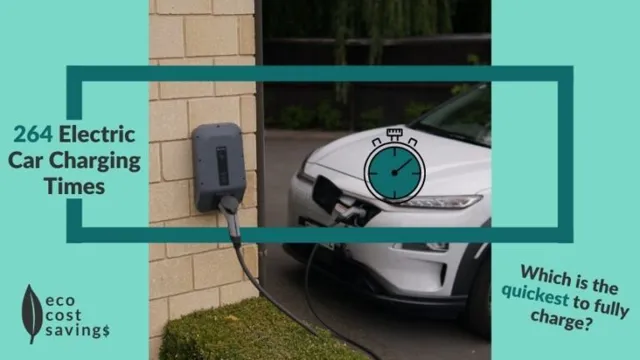
Shorter Charge Times
Shorter Charge Times When it comes to charging your device, faster is always better. Longer charge times can become a source of frustration, especially when you’re in a hurry and need your device to be powered up and ready to go. This is why having a device with a fast charging feature is important.
Shorter charge times can save you a lot of time and make your life easier. For example, if you only have 15 minutes to charge your phone, a fast charging feature can ensure that you have enough power to last the day. It’s like having a power boost when you need it the most.
So, if you’re someone who’s always on the go and needs their device to be charged quickly, investing in a device with a fast charging feature is definitely worth it.
Factors That Affect Charging Time
When it comes to electric car battery charger time, there are a number of factors that can affect how long it takes to juice up your car. One major variable is the size of the battery in your vehicle. A larger battery will typically take longer to charge than a smaller one.
Additionally, the speed of the charging station you’re using will play a role. Different types of stations offer varying charging speeds, with some able to provide a full charge in just a few minutes. Weather conditions can also impact battery performance, as high or low temperatures can cause the battery to charge more slowly.
Finally, the age of the battery itself may also have an impact on charging time, as older batteries may not be able to hold as much of a charge as they could when they were new. So if you’re in a rush to get back on the road, it’s important to keep all of these factors in mind when deciding where and how to charge your electric vehicle.
Battery Capacity
When it comes to charging your phone, battery capacity is crucial. However, several factors affect the charging time, such as the type of charger you’re using, the temperature of your surroundings, and the age of your battery. Using a fast charger will not only depend on your phone’s compatibility but also the wattage of the charger itself.
Additionally, charging your phone in hot temperatures may reduce the battery’s capacity, making it difficult to charge. Finally, as your battery ages, its capacity to hold a charge will also decrease, leading to a longer charging time. To optimize the charging time, it is best to use a charger compatible with your phone, keep it in a cool place while charging, and consider replacing your battery if it is significantly aged.
Charger Power
When it comes to charging your device, one of the most important factors to consider is the power of the charger. The strength of your charger determines how quickly your device can charge, but there are other factors that can affect charging time as well. For example, the size of your device’s battery and the age of your device can play a role in how quickly it charges.
Additionally, the type of connector you use and the quality of the cable can also impact charging performance. It’s also important to note that the charging speed varies depending on the type of charger you use. A wall charger will typically be faster than a portable power bank, for example.
Overall, while charger power is an important factor, it’s not the only consideration for fast and efficient charging.
Charging Speed
When it comes to charging speed, there are several factors that can affect it. One of the most crucial ones is the type of charger being used. For instance, a fast charger with a higher wattage will charge your device much faster than a standard charger with lower wattage.
The battery capacity of your device also plays a significant role in charging speed. A device with a larger battery capacity will take longer to charge than one with a smaller capacity. Another factor is the charging cable’s quality, as a damaged or low-quality cable can negatively impact charging speed.
Additionally, the level of usage during charging can affect the charging speed, and using your device while it’s charging can result in a slower charging time. It’s essential to consider all of these factors to determine how long it will take for your device to charge fully. By taking these factors into account, you can make sure that your electronic devices have enough power to keep up with your busy life.
Temperature
Temperature When it comes to charging your electronic devices, temperature can play a big role in how long it takes for them to fully charge. If the temperature is too hot or too cold, it can cause the battery to charge slower or faster than normal. For example, if you’re trying to charge your phone in a car on a hot summer day, the heat could cause the battery to overheat and slow down the charging process.
On the other hand, if you’re charging your phone outside in freezing temperatures, it could cause the battery to drain faster and take longer to charge. It’s important to find a room temperature environment to charge your devices to ensure the quickest charging time.
Fast Charging Options
When it comes to electric cars, one of the most important things to consider is the battery charger time. After all, nobody wants to sit around waiting for their car to charge for hours on end! Thankfully, there are now fast charging options available that can significantly cut down on charging time. These chargers are capable of providing up to 80% of a full charge in just 30 minutes, giving drivers the flexibility to quickly top up their battery while out and about.
Of course, it’s important to note that not all electric cars are compatible with fast charging, so it’s important to check your vehicle’s specifications before investing in a charging station. Additionally, it’s important to use caution when fast charging, as it can put extra strain on the battery and potentially shorten its lifespan. So, while fast charging options can be a game-changer for electric car owners, it’s important to use them wisely and make sure they’re the right choice for your specific vehicle.
DC Fast Charging
DC Fast Charging When it comes to electric vehicles, having fast charging options readily available is crucial. This is where DC fast charging comes into play. Unlike Level 1 and Level 2 charging, which use AC power and can take several hours to fully charge a vehicle, DC fast charging uses direct current (DC) power and can charge a vehicle to around 80% in as little as 20-30 minutes, making it an ideal option for those in a hurry.
DC fast charging stations are typically found along major highways and in high-traffic areas, allowing drivers to quickly and conveniently charge up their EVs while on the go. However, it’s worth noting that not all vehicles are compatible with DC fast charging, so it’s important to check your vehicle’s specifications before relying on this option. Overall, DC fast charging offers a speedy and convenient way to keep your electric vehicle charged up and ready to go.
Tesla Superchargers
Tesla Superchargers are the perfect solution for electric vehicle owners who don’t want to spend a lot of time waiting around for their battery to charge. These fast-charging options provide a quick and efficient way for drivers to get back on the road. And the best part? Tesla Superchargers can be found all over the world.
Whether you’re traveling across the country or just need to top off your battery during your daily commute, these charging stations are a convenient and reliable option. Not only are they fast, but they’re also easy to use. Simply pull up to a Supercharger, plug-in your vehicle, and let the station do the rest.
In just a few minutes, your battery will be charged up and ready to go. Plus, with the Tesla app, you can easily monitor your charging progress and get alerts when your battery is fully charged. If you’re looking for a hassle-free way to charge your electric vehicle, Tesla Superchargers are the way to go.
Conclusion
After all this talk about charging times for electric car batteries, it’s clear that patience truly is a virtue. But in this fast-paced world, waiting for a battery to charge can feel like an eternity. Thankfully, as technology continues to improve, so do charging times.
So while it may seem like we’re stuck in a slow lane, the electric car revolution is gaining speed with each passing day. And hey, who says waiting can’t be sparktacular? As Benjamin Franklin once said, “Time is money,” but when it comes to electric car battery charging, time is power.”
FAQs
What is the average charging time for an electric car battery using a Level 2 charger?
On average, a Level 2 charger can fully charge an electric car battery in 4-8 hours.
Can I charge my electric car battery using a standard household outlet?
Yes, you can charge your electric car battery using a standard household outlet, but it may take much longer than with a Level 2 charger.
Are all electric car batteries the same, or do they require different charging times?
Electric car battery types vary, but most can be charged using a Level 2 charger or DC fast charger, with different charging times depending on the battery capacity.
Can charging an electric car battery too quickly or too often damage the battery?
Charging an electric car battery too quickly or too often can cause the battery to degrade faster, reducing its lifespan. This is why it’s important to charge at a steady rate and avoid overcharging.
